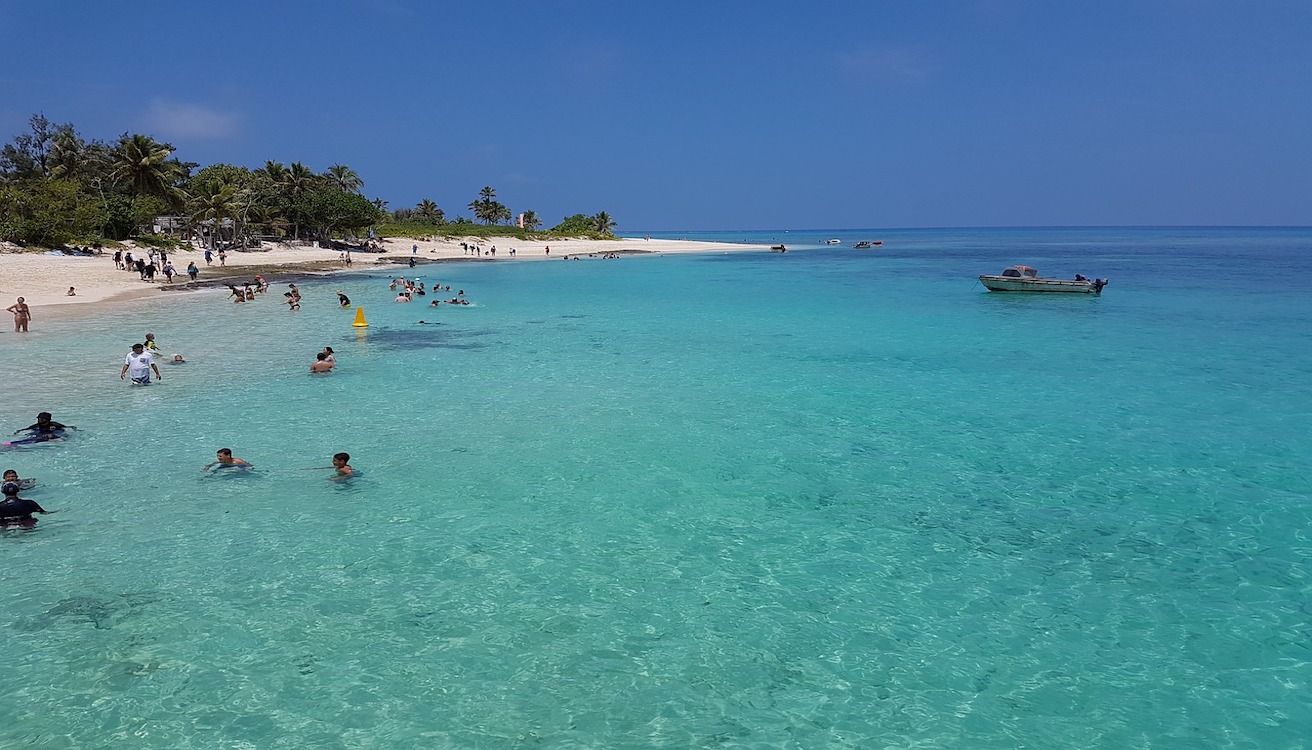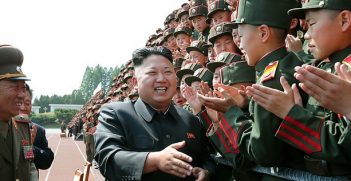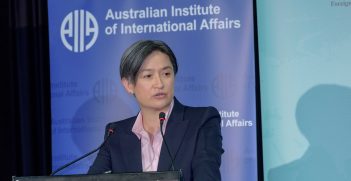Climate, Coal, Kinship and Security in Australia-Pacific Relations

Australia’s efforts at developing a positive relationship with the Pacific Islands appear to be shadowed by Australia’s continued reliance on coal, which has greatly angered Pacific leaders.
After decades of assuming a “backyard status,” the Pacific Islands region now finds itself in Australia’s geopolitical front yard. Pacific leaders, have consistently expressed the urgent need for climate action and have criticised Australian reliance on coal.
Coal, however, is Australia’s red line in the sand, and this stance led to a long and tense meeting at the recent Pacific Islands Forum gathering with no unanimous endorsement of the climate focused Tuvalu Declaration.
The Pacific is now more visible in Australian media and policy discussions in ways it hasn’t been for decades. This intense and renewed interest, regularly described by Morrison and Minister for the Pacific Alex Hawke as a matter of being part of the “Pacific family,” isn’t matched by widespread Pacific literacy domestically. Many Australians think Pacific countries are only interested in a cash grab and most “Pacific experts” are non Pacific Islander international relations, security and development analysts, or economics and foreign affairs journalists, and former diplomats who have not spent in depth time in the region or, if they have, view the islands from an expatriate or Australian centred perspective. That perspective puts Australian economic, political and strategic values and priorities well above those of Pacific peoples.
Climate Action vs. Geopolitical Competition
Australia’s heightened interest is primarily to counter China’s increasing economic influence in the region, which Pacific Island governments have largely welcomed. Canberra’s “Pacific Step Up” frames its foreign policy initiative, aimed at strengthening Australia’s diplomatic, economic and strategic influence. This is backed by financial commitments like the $2 billion Australian Infrastructure Financing Facility for the Pacific and the $500 million package for renewable energy and climate change adaptation out of existing aid allocations.
The attempts to contain China resemble the strategic denial policy deployed by western countries for much of the post-WWII period, aimed at blocking Soviet Union access to the region. The US and Australia fear that Beijing might use its influence to establish a military presence in the region. So far, there has been no evidence of that.
Nevertheless, Australia has partnered with the US to redevelop a naval base on Manus in Papua New Guinea, where Australian Navy vessels could be based permanently. In Fiji, where China was seeking to redevelop the Republic of Fiji Military Force (RFMF) Black Rock facility in Nadi for police and peacekeeping training, Australia intervened with a better offer, which was accepted. Australia is also paying for much of the installation of a high-speed communications cable connecting Australia, PNG and Solomon Islands to ensure that Chinese company Huawei didn’t get the contract.
In the islands and amongst Pacific Studies colleagues, there is great concern about Australia’s securitisation of the region, evident in the deployment of military infrastructure and in the nature of research, policy and discussions about the region, particularly in Canberra.
Earlier this month, Canberra announced the establishment of a Pacific Security College to be hosted at the Australian National University (ANU) and answerable directly to DFAT, aimed at bolstering security cooperation in the Pacific Islands. This is indicative of the securitisation of Pacific Studies, and of academic spaces and discourses about Oceania. The lack of indigenous Pacific Islander scholars working in Australian institutions increasingly expected to know something about the Pacific is also a problem.
Australia’s Step Up has largely ignored the interests and priorities of Pacific countries resulting in increased militarisation rather than environmental, cultural and human security desired by islanders. Central to these is climate change, which island countries identify as the single most important security issue for them; an existential threat to the islands, islanders and their rich cultural heritage.
Scott Morrison’s $500 million funding for renewable energy and climate change adaptation is moot if it doesn’t include a reduction in Australia’s coal production. According to Tuvaluan Prime Minister Enele Sopoaga, “No matter how much money you put on the table, it doesn’t give you the excuse to not do the right thing… Cutting down your emissions, including not opening your coal mines, that is the thing we want to see.”
Australia has largely paid lip-service to the climate change issue and its commitments to the 2016 Paris Agreement, which required countries to reduce greenhouse gas emissions. It has chosen to throw money at Pacific Island countries, rather than cut back on its lucrative coal industry. Its narrative about meeting Paris emissions reductions targets is flawed by the use of carry-over credits where it takes the surplus from targets under the Kyoto Protocol that ends in 2020 and counts them towards obligations under the Paris agreement ending in 2030. This means Australia only needs to do half the amount of emissions reductions work that they would’ve done to meet Paris targets.
There has been a full-blown international rush for the Pacific with no shortage of creative and vertical metaphors. To complement the Step Up, New Zealand has its “Pacific Reset,” the United Kingdom a “Pacific Uplift,” and Indonesia, a “Pacific Elevation.” Other metaphors abound with Morrison and Hawke’s family friendly aspirations. But kinship comes with important expectations, values and responsibilities. In the Pacific, relatives can make serious requests of each other, and it’s a major cultural faux pas to say no.
So now Australia’s said a big no. So is it a Step Up? Or a Step Back? Or a Step On?
And what can Pacific countries do? Perhaps we could start with another question.
What would our region look like without this dependency on donors who use their economic and military powers to undermine Pacific Islander priorities, hopes and visions for a future above water?
Dr Katerina Teaiwa is from Fiji and Kiribati. She is associate professor in Pacific Studies, and Gender, Media and Cultural Studies in the School of Culture, History and Language at ANU.
Dr Tarcisius Kabutaulaka is from the Solomon Islands. He is an ANU Alumni and associate professor and director of the Centre for Pacific Islands Studies at the University of Hawai‘i at Manoa.
This article is published under a Creative Commons Licence and may be republished with attribution.





